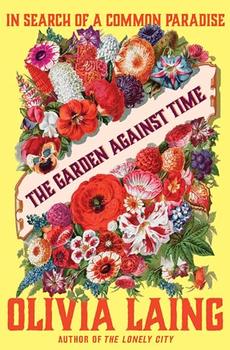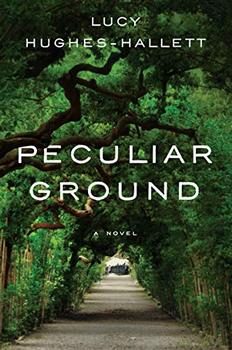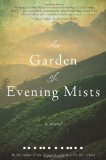Summary | Excerpt | Reviews | Beyond the book | Read-Alikes | Genres & Themes | Author Bio

In Search of a Common Paradise
by Olivia LaingIn August of 2020, after decades of precarious sublets and uninspiring bedsits, 43-year-old Olivia Laing suddenly found herself with a home of her own. Newly married to a retired Cambridge don, not only did she become owner of a magnificent Georgian house, but—more importantly for the green-thumbed writer—she became owner of its magnificent walled gardens, too. And during that anxious, Covid-inflected summer, the timing of her move couldn't have been more propitious. Gardening offered Laing an escape, just as it did so many others (almost 20 million Americans, she tells us, started a garden over the course of 2020). Through the long months of confinement, during which Laing witnessed social upheaval as well as personal tragedy, she sought to sow the seeds of something close to paradise in her own backyard.
Part memoir, part literary criticism, and part social history, The Garden Against Time is the impressive fruit of that hard labor. Sprouting from the story of her own intimate garden, Laing's book expands into the story of private outdoor spaces writ large: how they have come to be equated with a personal Eden, and how enduring networks of power ensure access to these utopias remains reserved for a privileged few. Her focus is as much on the injustice at the roots of a private garden as on its beauty; for every stunning landscape that surrounds an English country estate, Laing discovers the equally stunning cruelty on which it was built and through which it was sustained. Although it may no longer be revelatory to say the British aristocracy dabbled in both horticulture and slavery, there is still enormous force in the clarity with which Laing joins these two dots.
Importantly, the author does not shy away from her privilege—after all, not everyone can afford a home worthy of a profile in The New York Times Style Magazine. She reserves special praise for those gardens, like Great Dixter in the south of England, that manage to fuse a sense of intimacy with a public-facing ethos, and it's the tension between her generous spirit and her urge to cultivate a private space that drives so much of the interest of The Garden Against Time. Her ideals aim high, but can we truly find, as the book's subtitle suggests, a common paradise?
It would go too far to say Laing ever successfully provides an answer, but she is a fascinating writer precisely because we see her working through her ideas as if in real time. Just as she never shirked the muddy, hands-on work of beautifying her garden, neither does she forego the hard reflective work that should be necessary for all who find themselves in such a privileged position. Gardening is as much an intellectual endeavor for Laing as it is a physical one, and the roots of her thinking run deep. She makes room in this expansive book for figures ranging from the Greek historian and philosopher Xenophon to Toni Morrison, but the greatest space is given over to micro-biographies of those who, like herself, have sought to plant paradise. Between vignettes from her own struggles, Laing introduces figures like John Clare, the 19th-century "peasant poet" who captured the natural world in verse; Iris Origo, the heiress whose Italian estate turned refugee camp in the Second World War; and Capability Brown (see Beyond the Book), the landscape architect whose vision of rolling hills and untouched valleys reshaped the English countryside.
All these disparate parts undoubtedly give the The Garden Against Time a loose feel, but Laing is skillful enough to gather her anecdotes into satisfying bouquets. Indeed, her taste in prose certainly matches her taste in flora; the writing is overabundant and knotty, but always hovering on the right side of unmanageable. At certain moments, the book reads more like an inscrutable encyclopedia of botanicals than anything else, its sentences blooming over with "alkanet, chickweed, creeping buttercup, enchanter's nightshade, the rusty leaves of lady's mantle." One can easily feel lost in the weeds, but that may just be Laing's point: not to furnish her reader with detailed images, but to gesture at an as-yet-undiscovered richness bedded into even the most common garden. More than her erudition, it's this striking passion for each seed her hands have put in the ground that makes The Garden Against Time such a joy.
Any reader of Laing will rightly find themself inspired to grab the nearest trowel and dibber and set to work. The author's hope—and it is a noble hope—is that any would-be horticulturalist will approach their garden with an openness and a generosity of spirit. The very word "paradise," she tells us, comes from the ancient Persian meaning "walled garden." But that doesn't mean we have to stick to this idea of enclosure, defining heaven on earth according to who gets kept out. If you want to try your hand at planting a new Eden, Laing couldn't be happier. Just make sure you leave the gates ajar.
![]() This review
first ran in the July 17, 2024
issue of BookBrowse Recommends.
This review
first ran in the July 17, 2024
issue of BookBrowse Recommends.

If you liked The Garden Against Time, try these:

by Lucy Hughes-Hallett
Published 2019
The Costa Award-winning author of The Pike makes her literary fiction debut with an extraordinary historical novel in the spirit of Wolf Hall and Atonement - a great English country house novel, spanning three centuries, that explores surprisingly timely themes of immigration and exclusion.

by Tan Twan Eng
Published 2012
Malaya, 1951. Yun Ling Teoh, the scarred lone survivor of a brutal Japanese wartime camp, seeks solace among the jungle-fringed tea plantations of Cameron Highlands. There she discovers Yugiri, the only Japanese garden in Malaya, and its owner and creator, the enigmatic Aritomo, exiled former gardener of the emperor of Japan.
Your guide toexceptional books
BookBrowse seeks out and recommends the best in contemporary fiction and nonfiction—books that not only engage and entertain but also deepen our understanding of ourselves and the world around us.